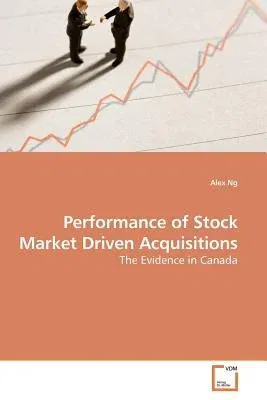Alex Ng
(Author)Performance of Stock Market Driven AcquisitionsPaperback, 15 May 2009

Qty
1
Turbo
Ships in 2 - 3 days
In Stock
Free Delivery
Cash on Delivery
15 Days
Free Returns
Secure Checkout
Print Length
132 pages
Language
English
Publisher
VDM Verlag
Date Published
15 May 2009
ISBN-10
3639136853
ISBN-13
9783639136852
Description
Product Details
Author:
Book Format:
Paperback
Country of Origin:
US
Date Published:
15 May 2009
Dimensions:
22.86 x
15.24 x
0.79 cm
ISBN-10:
3639136853
ISBN-13:
9783639136852
Language:
English
Location:
Saarbrucken
Pages:
132
Publisher:
Weight:
204.12 gm

